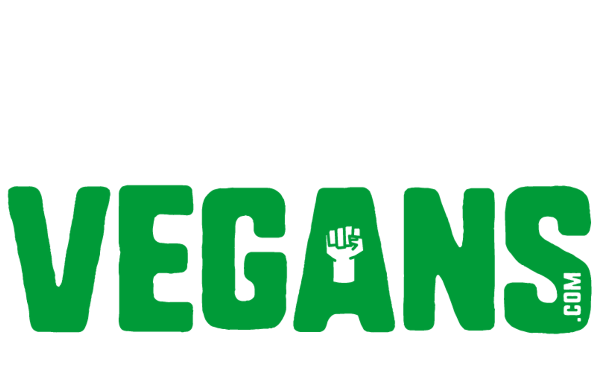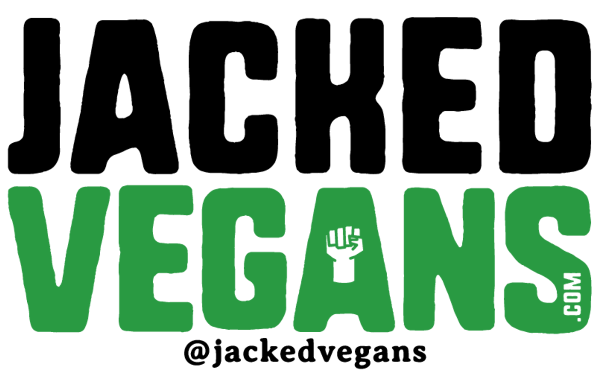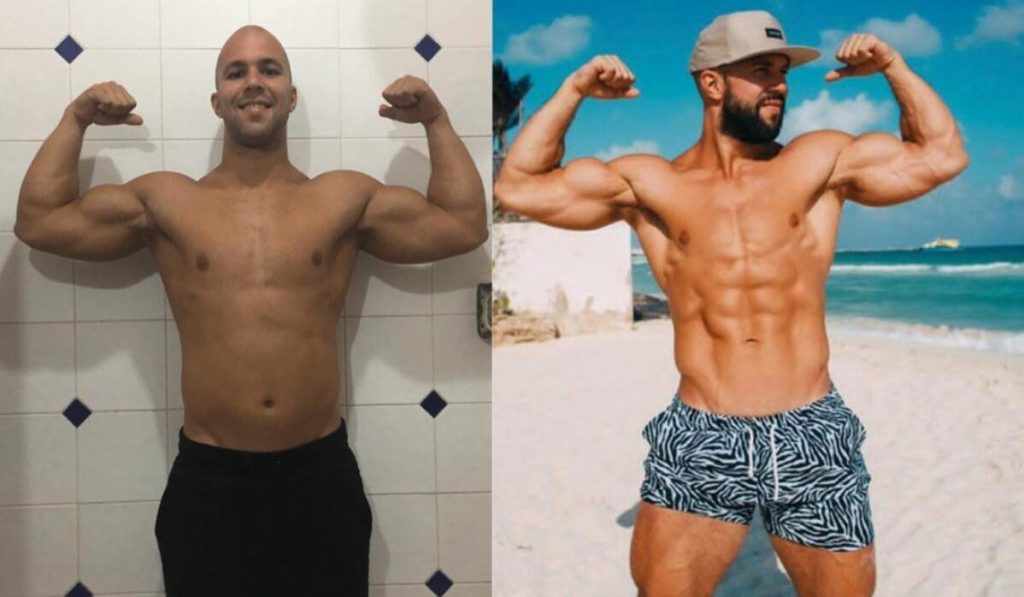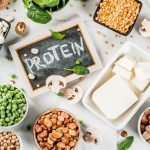Are you interested in going vegan and don’t know where to start?
The vegan diet was ranked as the 2nd best diet for weight loss by the US News and World Report in 2020.
Whether it’s for the potential health benefits or the general concern for animals and the environment, veganism is under the spotlight.
If you want to know more about veganism and are interested in making the change, then you’ve come to the right place. This post will help you understand more about the benefits and risks, and can help you figure out if veganism is for you and, if applicable, how to make the transition easier.
What is the vegan diet?
The vegan diet is commonly practiced by people who, by their own choice, have decided to stop eating or consuming animal products.
Variations of veganism exist but they mainly revolve around eating more plant foods, fruits, nuts, seeds, and legumes. Some of them are:
Vegan – aside from following a diet that consists of plant products, vegans also abstain from consuming or using products that are derived from animals as well, such as leather, milk, some supplements, and wool. They even avoid buying products that were tested on animals.
Being a vegan goes beyond what is put on the plate and extends to their lifestyle.
Vegetarian – primarily eats fruits, vegetables, nuts, and legumes, excluding meat, fish, dairy and eggs. They do not oppose using products derived from animals like wool and leather, and primarily stick to non-meat options in their diet.
Photo by Iñigo De la Maza on Unsplash
Pescatarian – eats mainly plant-based food but allows fish (but not eggs).
Plant-based diet – Eats a diet that consists mainly of plant-based foods but does allow for occasionally eating meat, fish, and poultry.
Why go vegan?
People go vegan for the following reasons:
- To stop cruelty to animals. Many believe that all sentient beings have the right to live and lead a good life.
- They are concerned for the environment. This article reports the effect that raising livestock has on the environment, mainly the degradation of land, and on the greenhouse effect.
- They want better health. There is plenty of research that suggests that eating a diet consisting mainly of plant products helps protect people from certain illnesses and may even cure others. And speaking of better health…
What are the health benefits of switching to a vegan diet?
If done correctly, following a vegan can help you with the following:
Weight loss
The formula for losing weight will always stay the same: Burn more calories than you consume and you’ll burn fat. Simply put:
Calories burned > calories consumed = weight loss
With that said, physical activity and the quality of food that you eat plays a huge part in losing weight. One reason a diet that’s centered around plant products helps you lose weight is because they are dense in nutrients (which your body needs to function at optimal level), low in calories, and high in fiber (which helps keep you full longer).
They also avoid a lot of the junk food filled with trans fat, which could be one reason for weight gain..
Helps protect against chronic disease
Diabetes, obesity, heart disease, hypertension, and cancer.
Photo by Hush Naidoo on Unsplash
There are plenty of studies and researches done linking meat to these diseases, but they are far from conclusive. And although following a vegan diet has shown promising results in preventing illness, more tests must be done to conclude that the improvement is attributed to the vegan diet alone.
A few things are clear, however.
First, eating high amounts of processed meat over a period of years and decades can contribute to illness. Going on a vegan diet helps you minimize or eliminate processed meats that contain harmful chemicals like N- Nitroso compounds and have high concentrations of salt.
Also, vegans avoid most foods that are high in trans fat (frozen pizza, baked goods that are not vegan, fried chicken, cookies, etc) which, if consumed in large amounts over a long period of time, could lead to illness.
Plant products contain plenty of antioxidants, fiber, and minerals that can help control blood glucose levels.
And lastly…
Whether you’re vegan or not, there are other factors to take into consideration if you want to avoid illness such as lifestyle (smoking) and physical activity (exercise).
However, focusing your diet on whole foods such as fruits, vegetables, grains, nuts, and seeds is a huge step in the right direction when it comes to good health.
The risks of a vegan diet and how to manage it
Disclaimer: It’s best to consult a specialist to see if it’s safe to switch to a vegan diet, especially if you have a medical condition and if you suspect that you have a deficiency in one of the vitamins below.
What happens to the body when you go vegan? Each of our bodies react differently to the change in diet. It’s possible that you’ll experience some headache, upset stomach, and change in energy levels. This could be your body adjusting to your new diet and can take anywhere between a few days to a few weeks to subside.
Stick to your diet until your body adjusts, but if you feel something is not right, go ahead and see a specialist.
SHOULD YOU BE CONCERNED ABOUT Vitamin deficiency?
The biggest concern when turning vegan is the possibility of nutrient deficiencies, particularly vitamin B12, vitamin D, calcium, iron, zinc, and omega-3 fatty acids.
These vitamins are crucial for the following functions:
Vitamin B12
Vitamin B12 helps with the formation of red blood cells and prevents anemia. A low level of vit B12 can lead to less red blood cell levels reaching your bloodstream and less oxygen carried to different parts of your body causing fatigue.
Deficiency in vitamin B12 is also known to cause depression, involuntary shaking, involuntary weight loss, and loss of appetite.
Since our body doesn’t manufacture its own Vit B12, it’s important that you get it from a diet of foods fortified with vit B12 (such as breakfast cereal) or from supplementation. Just make sure to check if there were any animals used in the production of such supplements.
The RDA for Vit B12 is set at 2.4 mcg for adults, 2.6 for pregnant women, and 2.8 for lactating women.
Vitamin D
Vitamin D is produced by our body when it is exposed to the sun. It is crucial for bone formation as it helps our body to absorb calcium from our diet.
A deficiency in this vitamin can cause abnormal bone formation, soft bones (osteomalacia), or rickets, and muscle pain.
The RDA for Vit D for children and adults is 600 IU per day, while pregnant or lactating women and elder people should aim for 800 IU per day.
It’s very hard to meet the required daily requirement for this vitamin, especially on a vegan diet, so it’s essential to take supplements and load up on foods rich in vitamin D such as fortified soy or almond milk, fortified cereals, or mushrooms.
Calcium
Calcium is not only important for bone and teeth formation, but it is also important to heart health and muscle function.
The RDA for calcium is around 1000 mg daily and a little bit higher at around 1200 mg per day for those that are 50 and above.
The main source of calcium in our diet usually comes from dairy products like milk, yogurt, and cheese, however, you’ll be surprised to find out that there are plenty of calcium sources out there for a vegan diet. They are:
- Sesame, flax and chia seeds
- Soy products (tofu, tempeh, and natto)
- Beans
- Lentils
- Almonds
- Some leafy greens like collard greens, kale, bok choy, and spinach
- Edamame
- And of course, fortified foods like soy milk
Iron
Iron is crucial to the production of hemoglobin, the protein that helps move oxygen from the lungs to the rest of the body. When you have low iron levels, your red blood cells will have less capacity to carry oxygen, which can cause feelings of fatigue, weakness, and dizziness, and could potentially lead to anemia.
Adult men typically need 8 mg. This increases to 18 mg for adult women and 27 mg for pregnant women.
Meat is not the only source of iron. As a matter of fact, there are plenty of sources of iron for vegans. Leafy greens (like spinach, swiss chard, and kale), legumes, lentils, nuts and seeds, are all good sources. However, iron found in plants is harder to absorb than iron found in animal products, which makes it harder for vegans to meet the daily requirement.
There are a few things you can do to manage this:
- Double your intake of iron-rich plant foods.
- Try eating foods that are fermented such as sauerkraut and fermented soy products. Fermenting helps increase the bioavailability of iron.
- You can also help increase your body’s ability to absorb iron by combining foods rich in iron with foods rich in vitamin C.
Zinc
Vegans need approximately 40% more zinc than meat eaters. The RDA for zinc among vegans is around 8-11 mg for adults, 11-12 mg for pregnant women, and 12-13 mg for lactating women.
Zinc is a critical component to creating DNA, the genetic blueprint in all cells. Low levels of zinc can lead to a compromised immune system, involuntary weight loss, and hair loss.
There are plenty of sources of zinc in a vegan diet (beans, peas, tofu, oats, and cashews), but like iron, you want to help your body increase the absorption of zinc by eating fermented vegetables.
Omega 3 fatty acids
There are three main types of omega-3 fats:
- Docosahexaenoic acid (DHA)
- Eicosapentaenoic acid (EPA)
- Alpha-linolenic acid (ALA)
DHA and EPA (long chain omega 3 fatty acids) can be found in algae while ALA (essential omega 3 fatty acids) can be found in walnuts and flax. Our bodies cannot synthesize them and can only get them through dietary sources.
They support brain and heart health, and they play an important role in our body’s immune functions, as well as provide us with energy.
Not consuming enough omega-3 fats could potentially lead to heart disease, skin inflammation, obesity, and metabolic syndrome.
Vegans typically have about 50% lower DHA and EPA levels than meat eaters. Experts suggest consuming between 200-300 mg per day of these long chain amino fatty acids. Supplementing with algae oil helps in meeting the RDA for vegans.
Foods rich in ALA are chia, flax, and hemp seeds, beans, and walnuts. This does not guarantee that you’ll meet the daily omega-3 requirements so it’s still important to supplement (algae oil provides a plant-based source of omega-3).
Optional Supplements
Vegan Protein powder
A great way to add protein to a vegan diet is by adding vegan protein powder (made up of protein from rice, pea, quinoa, or seed protein) to your green smoothie or oatmeal for breakfast.
Since most vegan protein sources are incomplete or not easily absorbed by the body, supplementing with vegan protein is valuable especially for vegan athletes, physically active, and those who want to lose weight.
Creatine
Creatine is a molecule found in animal products. Vegans have lower creatine levels in their muscles than meat eaters.
This can be considered a non essential since everyone produces creatine in the liver, however, if you’re trying to build muscle then consuming creatine supplements may improve fitness and physique results.
Creatine supplements are created without using animal products and is completely vegan. The recommended dosage is around 3 pg per 100 lb of body weight.
Caffeine
In case you want to switch to a vegan diet for its possible effects on your weight then you can further improve your results by consuming caffeine as well.
Caffeine is a nervous system stimulant that helps people lose weight by decreasing hunger and by allowing them to train just a bit harder than usual.
Eating at Restaurants on a Vegan Diet
You can sum it all up in one word when it comes to eating vegan at a restaurant: Preparation.
If you are dining out, check which restaurants are vegan friendly and offer vegan alternatives. You can check menus online to see if there’s anything that you can eat or if you need to, call in advance so you can ask if it’s possible for the chef to prepare a meal and replace the non-vegan ingredients like meat/fish, milk, and eggs with something more vegan friendly.
In today’s age, there are more restaurants that cater to vegetarian/vegan customers than ever, so it won’t hurt to ask. However, it would be best to ask before you’re seated so you can move on to a different restaurant if necessary.
If it’s an unplanned lunch or dinner, a great choice to find vegan alternatives are Mexican, Middle Eastern, Thai, and Indian restaurants.
Eating at Social Gatherings on a Vegan Diet
Much like eating at restaurants, it’s best to prepare in advance if you’re going to a party or event to ensure there will be vegan options.
It’s good to let the host know that you’re vegan so they can prepare something for you. A gracious host will have no issue accommodating a vegan guest’s needs.
You can also bring your own food that’s vegan so you can introduce it to your friends/family members who might not know how awesome vegan food is.
If worst comes to worst, you can always eat a big meal before you go to the event so you don’t have to worry about being hungry the whole time you’re there.
How to make the transition to a vegan diet easier?
1.Work at your own pace
Some people can quit “cold turkey” (quitting without looking back) and have no issues. Others might take longer.
Since you’ve been a consumer of animal products most of your life, you might want to consider doing a “trial period” (try going vegan for a week or two) just to get a feel if this lifestyle is for you.
You can also remove the animal products from your diet gradually instead of all at once. Give yourself the wiggle room to make mistakes during this time and don’t be too hard on yourself. It may sound cliche but aim for progress instead of perfection.
2. Consider working with someone with experience
A specialist can show you how to get everything you need while eating a vegan diet, ensure that you transition well into a new eating habit, and how to best meet your body’s nutritional needs.
Also, you might want to seek guidance from someone who has successfully transitioned to a vegan diet (like the Jacked Vegans Academy) or join a community for vegans.
The tips and tricks you can get from them will go a long way in helping you navigate the challenges when you make the switch.
3. Learn how to read the labels
Unfortunately, it’s possible to find animal products in unsuspecting products like chips and juice. Read the labels to spot the possible animal products like lactose, whey protein, casein, and others.
Some products might be vegan but it might not be healthy, so you still need to read the labels to ensure items are low in sodium and made from whole foods. Examples are:
- Some processed vegan meat and cheese
- Vegan protein bars that high amounts of sugar
- Some dairy free milk which contains lots of added sugar
- Vegan cookies, fries, pizza, etc (vegan junk food)
4. Learn what the best vegan food substitutes are
I’m not going to lie, you’re going to miss most of the foods you ate before you transitioned to a vegan diet (like a cheeseburger or cheesecake), so it’s important you are prepared to face the cravings when they come.
Vegan substitutes are important to help you make food that tastes like the original but vegan and healthy, so you stick to your new diet instead of sliding back into old eating habits.
5. Make your meals simple but delicious
It’s nice to have a fancy meal once in a while but cooking complicated meals can easily turn into a second job if you have to spend too much time making it.
Here are 29 easy-to-make plant-based recipes you can try.
6. Feed your soul
Of course, don’t forget dessert! Switching to vegan doesn’t mean your sweet tooth has to suffer. As a matter of fact, there are plenty of vegan desserts that are easy to make and delicious.
What are the foods to avoid on a vegan diet
- All meat, including the organ meat (beef, pork, lamb, horse, veal, wild meat, etc)
- All dairy products (milk, cheese, whey protein, ghee, cream, ice cream, and butter)
- Poultry (eggs, duck, turkey, chicken meat)
- Gelatin and products that contain gelatin
- Fish and seafood (fish, crustaceans like shrimp, lobster, and crab, shellfish, and mussels)
- Bee products (for strict vegans)
- Non vegan Mayonnaise (because it contains egg)
- Products that use animals for testing purposes
What are the foods to eat?
- Fruits
- Vegetables
- Legumes (peas, beans, and lentils)
- Nuts and seeds
- Grains, breads, pasta, and rice
- Tofu
- Tempeh
- Seitan
- Dairy alternatives (almond milk, coconut milk, and soy milk)
- Vegetable oils
- Vegan mock meats
Breakfast
Photo by Mariana Montes de Oca on Unsplash
- Vegan Breakfast Tacos
- Vegan fry-up
- Cauliflower Breakfast Scramble
- Peanut Butter Acai Bowl
- Banana Eggnog Pancakes
- Blueberry Oatmeal Waffles
- Pumpkin Spice Pancakes
- Puttanesca Tofu Scramble
- Cozy Turmeric Porridge
- Easy Egg-free Frittata
Lunch and Dinner
Photo by Andrea Davis on Unsplash
- Vegetarian Fajitas
- Sweet potato, peanut butter & chilli quesadillas
- Easy Vegan Chili Sin Carne
- Loaded potato skins
- Five ingredient veggie burger
- Double Batch Chickpea Cutlets
- Quarter Pounder Beet Burger
- Sloppy Joe Pitas
- Quick Black Bean Tostadas
- Quick Hummus and Quinoa Wraps
- Grilled Romaine Caesar Salad with Herbed White Beans
- Chicken Stylee Seitan
- Mexican Bean soup with Guacamole
- Tacos de Hongo
- Asian Veggie Wraps
- 20-Minute Tofu Stir-Fry
- Easy Massaged Kale Salad
- Grilled Squash and Mushrooms with Fresh Herbs
- 1-Pot Everyday Lentil Soup
- Vegan Pumpkin Mac ‘n’ Cheese
Snacks and Desserts
Photo by Milada Vigerova on Unsplash
- Vegan raspberry & chia pudding
- Healthy no-bake vegan protein bars
- Mexican Chocolate Nice Cream
- Almond-Oat Cookie Bars with Pumpkin Frosting
- No-Bake Brownie Bites
- Easy No-Bake Chocolate Chip Cookies
- No-Bake Red Velvet Cake Balls
- Peanut Butter Brownies
- Chocolate Mousse Cupcakes
- Just Chocolate Cake
Diverse vegan resources:
Websites (for more recipes)
Vegan Ingredients
- Trader Joe’s
- Farmer’s markets
- Whole Foods
Online Vegan Delivery Services
- Plant Based Grocery
- PlantX
- Thrive Market
- Amazon Fresh
- Rabbit Food Grocery
- Vegan Cuts
- Vegan Questt
- Hungry Root
- Imperfect Foods
Vegan Cheese
- Kite Hill
- Violife
- Miyoko’s
- Treeline
- Tofutti’s
- Blöde Kuh
Vegan Cookbooks
- American Vegan Kitchen
- Chloe’s Kitchen
- Compassionate Cuisine
- The Vegan Cookbook for Athletes
- Fork Over Knives the Cookbook
- The Friendly Vegan Cookbook
- Minimalist Baker’s Everyday Cooking
Frequently Asked Questions
1. Why am I gaining weight on a vegan diet?
Whether you’re vegan or not, consuming too many calories will make you gain weight. Some make the mistake of consuming too much vegan junk food as well as too many carbs via pasta and bread (both considered vegan).
However, if you focus on consuming whole, plant-based food, you’ll find the weight comes off easily.
2. How do I get enough protein?
A lot of people think vegans can’t get enough protein because they don’t eat meat. There are plenty of plant-based proteins in a vegan diet. Check out this list for the best sources of plant-based protein.
3. Should I be taking supplements on a vegan diet?
There are plenty of vitamins that our body needs to perform important functions that we cannot synthesize on our own (such as omega-3 fatty acids and vitamin B12), which is why it’s important to consume fortified foods as well as alternative sources in order to meet our daily requirements.
Sometimes, this will still not be enough, which is why it’s important to consult a specialist to find out if you need to take supplements.
4. Can I only eat raw foods as a vegan?
No, it’s not a requirement to eat your food raw. Many vegans cook their food to make it delicious and more enjoyable.
5. Is it possible to build muscle on a vegan diet?
Absolutely
Although a vegan diet is devoid of animal protein, consuming plant foods rich in protein (such as tofu, legumes, and seitan), vegan protein powder, and sufficient amounts of healthy fat allow a person to meet the calories and protein needed to promote muscle growth. It’s helpful to track the macros for a few weeks to ensure you’re meeting your requirements.
Combine a complete vegan diet with proper training and you’ll maximize your ability to build muscle.
To summarize
Switching to a diet of plant-based foods can be beneficial to your health, enjoyable, and easy to follow. Remember to:
- Ensure that you’re sourcing most of your vitamins and nutrients from a wide variety of whole food sources, and minimize consuming processed foods.
- Consume fortified products to meet your daily nutrient requirements.
- Make your food delicious, tasty, and easy to make so it’s easier to stick to. You also want to diversify what you eat instead of just eating the same foods over and over
- Consult with a specialist to ensure a safe and healthy transition to a vegan diet
- Take supplements if necessary
- Join a community of people who share the same lifestyle as you to make your transition easier
Good luck and enjoy your journey!
_________________________________________________________________________
We’ve helped thousands of vegans shred fat, build muscle, and get the body they’ve always wanted.
How? With tailor-made meal plans, personalized workout routines, and regular 1 on 1 coaching calls.
If that sounds like something you could benefit from to finally get in shape and become a healthier person, apply to become a Jacked Vegan and I’ll get back to you soon!





